July 13 stands as one of history’s most eventful days, witnessing the rise and fall of empires, groundbreaking discoveries, and moments that shaped our modern world across centuries of human achievement.

Politics and Government Events on July 13
1962 – Harold Macmillan’s Night of the Long Knives
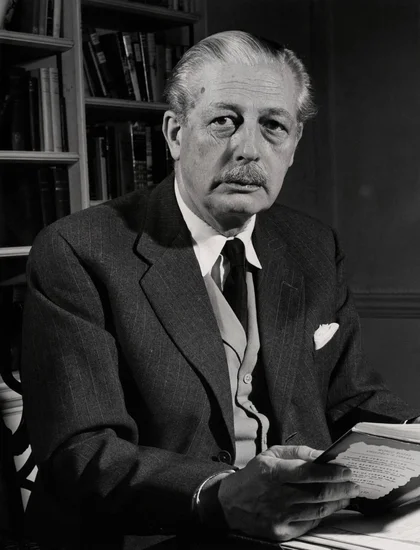
British Prime Minister Harold Macmillan dismissed seven Cabinet members in an unprecedented political purge. The dramatic reshuffling shocked Westminster and marked the effective end of the National Liberals as a distinct political force.
This bold move backfired spectacularly, undermining public confidence in Macmillan’s leadership. The mass dismissal contributed to the Conservative Party’s eventual electoral defeat and became a cautionary tale about political overreach.
1973 – Watergate Tapes Revealed
Alexander Butterfield stunned Senate Watergate Committee investigators by revealing the existence of President Nixon’s secret Oval Office recording system. This bombshell testimony transformed the entire investigation and brought down a presidency.
The revelation provided investigators with concrete evidence of potential criminal activity. Butterfield’s disclosure ultimately led to Nixon’s resignation and forever changed how Americans viewed presidential power and accountability.
1985 – Bush Becomes Acting President
Vice President George H.W. Bush assumed presidential duties when Ronald Reagan underwent colon surgery to remove polyps. This marked one of the rare instances when the Twenty-Fifth Amendment’s presidential succession provisions were invoked.
The smooth transition demonstrated the effectiveness of constitutional safeguards for presidential incapacity. Bush’s brief tenure as Acting President provided valuable experience that would serve him well in his future presidential campaigns.
2011 – South Sudan Joins United Nations
The UN Security Council adopted Resolution 1999, officially admitting South Sudan as the organization’s newest member state. This historic vote recognized the world’s youngest nation following its independence from Sudan.
The admission represented hope for peace in a war-torn region. South Sudan’s UN membership provided international legitimacy and access to global diplomatic forums during its challenging early years as an independent nation.
2016 – Theresa May Becomes Prime Minister
David Cameron resigned as British Prime Minister following the Brexit referendum, with Theresa May succeeding him at 10 Downing Street. This leadership transition occurred during one of Britain’s most turbulent political periods in decades.
May inherited the monumental task of negotiating Britain’s exit from the European Union. Her appointment marked the beginning of a new chapter in British politics, with Brexit negotiations dominating her entire tenure.
Military and Naval History on July 13
1941 – Montenegrin Uprising Begins
Montenegrins launched the Trinaestojulski ustanak (Thirteenth of July Uprising) against Axis occupation forces during World War II. This popular revolt demonstrated fierce resistance to foreign occupation in the Balkans.
The uprising inspired similar resistance movements across occupied Yugoslavia. Montenegrin fighters’ courage and determination contributed significantly to the broader Yugoslav partisan movement that eventually liberated their homeland.
1977 – Ogaden War Erupts
Somalia declared war on Ethiopia, initiating the Ogaden War over disputed territory in the Horn of Africa. This conflict drew in Cold War superpowers and reshaped regional politics for decades.
The war resulted in massive refugee crises and shifted Cold War allegiances in East Africa. Ethiopian forces eventually prevailed with Soviet and Cuban support, fundamentally altering the strategic balance in the region.
2008 – Battle of Wanat Begins
Taliban and al-Qaeda forces launched a devastating attack on US Army and Afghan National Army positions in Afghanistan. The battle resulted in the highest American casualties in a single engagement since operations began in 2001.
The fierce fighting exposed vulnerabilities in coalition defensive positions and tactics. The battle’s aftermath led to significant changes in military strategy and base construction throughout Afghanistan.
2011 – Mumbai Bombings
Three bomb blasts rocked Mumbai during evening rush hour, killing 26 people and injuring 130 others. The coordinated terrorist attacks targeted busy commercial areas, spreading fear throughout India’s financial capital.
The bombings demonstrated ongoing security challenges in major Indian cities. Law enforcement agencies intensified counterterrorism efforts and improved intelligence sharing to prevent future attacks on civilian targets.
Science and Discovery Milestones on July 13
1956 – Dartmouth Workshop Launches AI Era
The Dartmouth Workshop became the first conference dedicated to artificial intelligence research. This groundbreaking gathering established AI as a legitimate academic discipline and launched the computer age.
Leading scientists and mathematicians gathered to explore machine intelligence possibilities. The workshop’s ambitious goals and theoretical frameworks laid the foundation for decades of revolutionary technological advancement.
1993 – Space Shuttle Discovery Mission
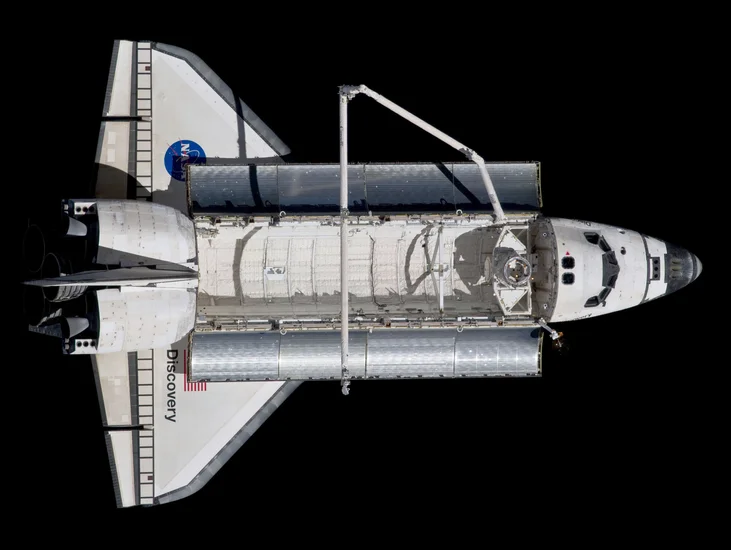
NASA launched Space Shuttle Discovery on mission STS-70 to deploy the TDRS-7 satellite. This successful mission demonstrated America’s continued leadership in space technology and satellite communications.
The TDRS-7 satellite enhanced global communications capabilities and supported future space missions. Discovery’s flawless performance showcased the Space Shuttle program’s reliability during its operational peak.
1990 – Lenin Peak Disaster
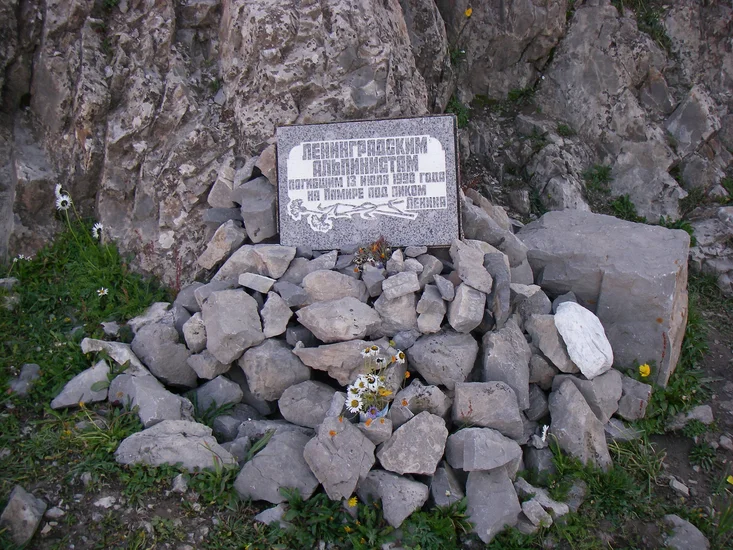
A devastating 6.4-magnitude earthquake in Afghanistan triggered a catastrophic avalanche on Lenin Peak. The disaster killed 43 climbers, making it the deadliest mountaineering accident in recorded history.
The tragedy highlighted the extreme dangers of high-altitude climbing in seismically active regions. The disaster led to improved safety protocols and emergency response procedures for international mountaineering expeditions.
Cultural and Arts Events on July 13
1985 – Live Aid Concert
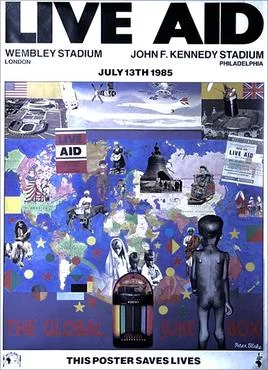
The Live Aid benefit concert took place simultaneously in London and Philadelphia, with additional venues in Moscow and Sydney. This unprecedented global event raised millions for African famine relief while showcasing music’s power to unite humanity.
Artists including Queen, U2, and David Bowie delivered legendary performances to worldwide audiences. The concert’s success demonstrated television’s ability to mobilize international humanitarian efforts through popular culture.
1930 – First FIFA World Cup Begins

The inaugural FIFA World Cup kicked off in Uruguay, establishing the world’s most prestigious football tournament. This historic competition brought together teams from across the globe in sport’s first truly international championship.
Uruguay’s hosting of the tournament marked South America’s emergence on the world sporting stage. The successful event laid the foundation for football’s growth into the world’s most popular sport.
1951 – Vuoristorata Roller Coaster Opens

The Vuoristorata wooden roller coaster opened at Helsinki’s Linnanmäki amusement park. This attraction became one of Europe’s oldest continuously operating wooden coasters, delighting generations of Finnish families.
The coaster’s construction represented post-war Finland’s cultural renaissance and growing prosperity. Its enduring popularity demonstrates timeless appeal of traditional amusement park attractions in the modern entertainment landscape.
Religious and Social Events on July 13
1913 – Romanian Army Cholera Outbreak
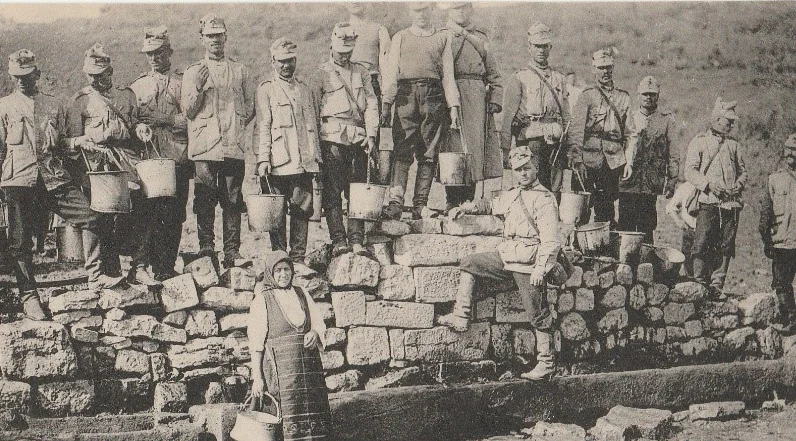
A severe cholera outbreak struck the Romanian Army during the Second Balkan War. The epidemic highlighted the devastating impact of disease on military campaigns and civilian populations.
Military medical services struggled to contain the outbreak while maintaining combat readiness. The crisis prompted significant improvements in military hygiene and medical protocols throughout the region.
2013 – Typhoon Soulik Devastates East Asia

Typhoon Soulik killed at least nine people and affected over 160 million residents across East China and Taiwan. The massive storm demonstrated nature’s awesome power and the vulnerability of densely populated coastal regions.
Emergency services mobilized unprecedented resources to protect civilians and minimize damage. The disaster highlighted the importance of early warning systems and coordinated international disaster response efforts.
2020 – Naya Rivera’s Body Recovered

Authorities recovered the body of actress and singer Naya Rivera from Lake Piru, California, after a five-day search. The tragic drowning shocked fans worldwide and highlighted water safety awareness.
Rivera’s death prompted discussions about solo boating safety and the importance of life jackets. Her passing represented the loss of a talented performer who had inspired countless young people through her work.
Business and Economic Events on July 13
1977 – New York City Blackout
New York City experienced a massive electrical blackout lasting nearly 24 hours during a period of financial crisis. The power failure led to widespread fires and looting, exposing deep social tensions.
The blackout cost the city millions in damages and highlighted infrastructure vulnerabilities. The crisis accelerated urban decay in certain neighborhoods while demonstrating the critical importance of reliable electrical systems.
2014 – Germany Wins World Cup
Germany defeated Argentina 1-0 in extra time to win the 2014 FIFA World Cup final. This victory generated enormous economic benefits for German football and boosted national pride.
The tournament success enhanced Germany’s global brand and attracted increased investment in football infrastructure. The victory demonstrated how sporting achievements can translate into significant economic and cultural advantages.
2024 – Trump Assassination Attempt
Former President Donald Trump was injured in an assassination attempt during a campaign rally near Butler, Pennsylvania. The shocking incident sent financial markets into turmoil and raised questions about political security.
The attack highlighted the volatile political climate and its potential economic consequences. Security concerns and political uncertainty affected campaign strategies and investor confidence throughout the election cycle.
Transportation and Infrastructure on July 13
1919 – R34 Airship Completes Atlantic Crossing
The British airship R34 landed in Norfolk, England, completing the first return journey across the Atlantic Ocean. The 182-hour flight demonstrated the potential of lighter-than-air aircraft for long-distance travel.
This aviation milestone proved that scheduled transatlantic passenger service was technologically feasible. The successful journey encouraged further development of commercial aviation and international air travel infrastructure.
2003 – French Rescue Mission Aborted
French DGSE personnel aborted a high-risk operation to rescue politician Íngrid Betancourt from FARC rebels in Colombia. The mission’s failure and subsequent media leaks created a major political scandal.
The botched rescue highlighted the complexities of international counter-terrorism operations. The incident strained diplomatic relations and raised questions about intelligence sharing and operational security protocols.
Sports and Recreation on July 13
1967 – Tom Simpson Dies on Mont Ventoux

British cyclist Tom Simpson collapsed and died during the Tour de France ascent of Mont Ventoux. The tragedy exposed the dangerous culture of performance-enhancing drug use in professional cycling.
Simpson’s death prompted significant reforms in cycling safety and anti-doping measures. His sacrifice became a catalyst for improved medical support and drug testing protocols in professional sports.
1993 – Davey Allison’s Fatal Accident

NASCAR driver Davey Allison died from injuries sustained in a helicopter crash at Talladega Superspeedway. The popular driver’s death shocked the racing community and highlighted aviation safety concerns.
Allison’s passing marked the end of a racing dynasty and prompted improved safety protocols. His legacy inspired enhanced driver safety measures and emergency response procedures at racing venues.
2010 – George Steinbrenner Passes Away
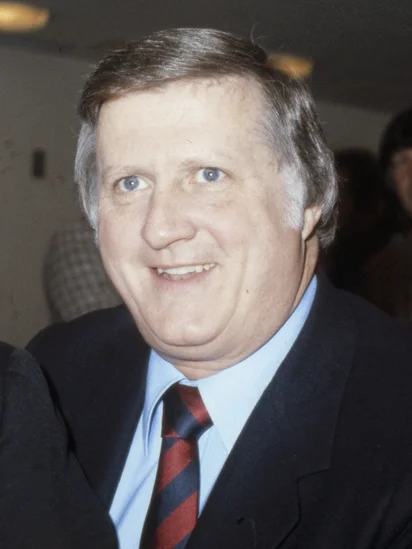
New York Yankees owner George Steinbrenner died at age 80, ending one of the most controversial and successful tenures in sports history. His aggressive approach transformed the Yankees into baseball’s most valuable franchise.
Steinbrenner’s death marked the end of an era in professional sports ownership. His innovative marketing strategies and willingness to spend on talent revolutionized how sports franchises operate and compete.
Notable Births on July 13
1942 – Harrison Ford Born

Hollywood legend Harrison Ford was born in Chicago, Illinois, beginning a journey that would make him one of cinema’s most beloved action heroes. His early interest in carpentry and acting shaped his practical approach to filmmaking.
Ford’s breakthrough roles as Han Solo and Indiana Jones established him as a global superstar. His enduring career spanning over five decades has made him one of the highest-grossing actors in film history.
1944 – Ernő Rubik Born
Hungarian architect and inventor Ernő Rubik was born in Budapest, destined to create one of the world’s most popular puzzles. His background in architecture and design influenced his approach to three-dimensional problem-solving.
Rubik’s Cube became a global phenomenon, selling over 350 million units worldwide. His invention sparked international interest in mathematics and spatial reasoning while becoming a cultural icon.
1948 – Cheech Marin Born

Comedian and actor Cheech Marin was born in Los Angeles, California, beginning a career that would revolutionize comedy. His partnership with Tommy Chong created groundbreaking counterculture humor.
Marin’s transition from comedy to serious acting showcased his versatility and talent. His work in television and film helped increase Latino representation in mainstream American entertainment.
1956 – Michael Spinks Born

Boxing champion Michael Spinks was born in St. Louis, Missouri, beginning a legendary career in the ring. His amateur success laid the foundation for professional boxing excellence.
Spinks became the first light heavyweight champion to win the heavyweight title. His technical skills and defensive prowess made him one of the most respected fighters of his generation.
1958 – Patrick Stewart Born

British actor Patrick Stewart was born in Mirfield, Yorkshire, beginning a distinguished career spanning stage and screen. His classical training with the Royal Shakespeare Company shaped his commanding presence.
Stewart’s portrayal of Captain Jean-Luc Picard made him a beloved figure in science fiction. His versatility across genres has earned him recognition as one of Britain’s finest actors.
1969 – Ken Jeong Born

Actor and comedian Ken Jeong was born in Detroit, Michigan, beginning a unique career combining medicine and entertainment. His medical background as a practicing physician influenced his comedic perspective.
Jeong’s breakthrough role in “The Hangover” established him as a comedic force. His success opened doors for Asian-American performers in mainstream Hollywood comedy.
Notable Deaths on July 13
1951 – Arnold Schoenberg Dies
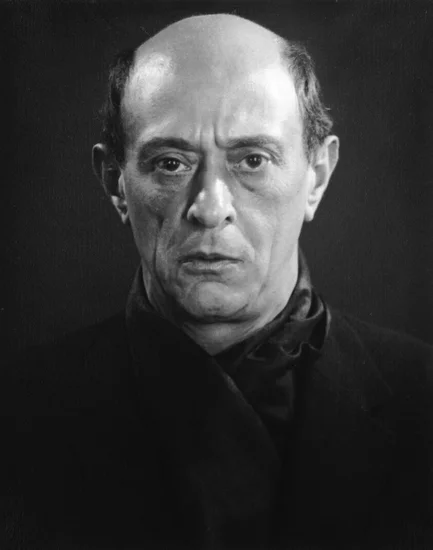
Austrian-American composer Arnold Schoenberg died in Los Angeles, ending a revolutionary career that transformed modern music. His development of twelve-tone composition techniques challenged traditional harmonic structures.
Schoenberg’s innovations influenced generations of composers and musicians worldwide. His theoretical writings and teaching methods continue to shape contemporary musical education and composition.
1954 – Frida Kahlo Dies

Mexican artist Frida Kahlo died in Mexico City, leaving behind a powerful legacy of surrealist and folk art. Her deeply personal paintings explored themes of identity, pain, and Mexican culture.
Kahlo’s work gained international recognition posthumously, inspiring feminist artists and activists. Her unflinching self-portraits and political consciousness made her an icon of artistic authenticity and cultural pride.
1965 – Photis Kontoglou Dies
Greek painter, illustrator, and writer Photis Kontoglou died in Athens, concluding a career dedicated to preserving Byzantine artistic traditions. His work revived interest in Orthodox Christian iconography.
Kontoglou’s artistic philosophy emphasized spiritual expression over Western modernism. His influence on Greek art and literature helped maintain cultural connections to Byzantine heritage.
2014 – Nadine Gordimer Dies

South African novelist and Nobel Prize laureate Nadine Gordimer died in Johannesburg, ending a distinguished literary career. Her novels courageously exposed the injustices of apartheid.
Gordimer’s writing provided international audiences with profound insights into South African society. Her moral courage and artistic excellence made her a powerful voice for human rights and social justice.
2017 – Liu Xiaobo Dies

Chinese human rights activist and Nobel Peace Prize winner Liu Xiaobo died in custody, becoming a symbol of peaceful resistance. His imprisonment highlighted China’s suppression of democratic voices.
Liu’s writings and activism inspired democracy movements worldwide. His death while in detention sparked international condemnation and renewed focus on human rights in China.
2020 – Grant Imahara Dies

Television host and electrical engineer Grant Imahara died suddenly at age 49, shocking fans of “MythBusters.” His expertise in robotics and special effects made science accessible to mainstream audiences.
Imahara’s work inspired countless young people to pursue careers in science and engineering. His contributions to popular science education helped bridge the gap between complex technology and public understanding.
Holidays and Observances on July 13
Statehood Day in Montenegro
Montenegro celebrates its Statehood Day, commemorating the country’s long struggle for independence and sovereignty. This national holiday honors the Montenegro’s recognition as an independent state by the Congress of Berlin in 1878.
The celebration includes cultural events, historical exhibitions, and patriotic ceremonies throughout the country. Citizens reflect on their nation’s journey from Ottoman rule through various political arrangements to modern independence.
Naadam Festival Concludes in Mongolia
The traditional Naadam festival concludes across Mongolia with its final day of competition in the “three manly sports.” Wrestling, archery, and horse racing determine champions in this ancient celebration.
Thousands of spectators gather to witness the culmination of Mongolia’s most important cultural event. The festival preserves nomadic traditions while strengthening national identity and cultural pride.
Kashmir Martyrs’ Day in Pakistan
Pakistan observes Kashmir Martyrs’ Day to honor those who died in the struggle for Kashmir’s self-determination. The day includes memorial services and political demonstrations supporting Kashmir’s cause.
Government officials and citizens participate in solidarity events across the country. The observance reinforces Pakistan’s commitment to the Kashmir dispute and remembers those who sacrificed their lives.
